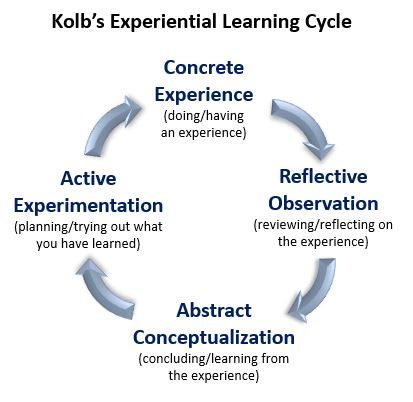
Leadership Essentials for Frontline Leaders
Coaching Framework
Effective business leaders possess a deep understanding of the context of their performance in order to effectively deal with unexpected developments or emerging opportunities. Yet, human nature is such that we easily slip into routines. We develop ways of looking at things that become ingrained over time, and learn to live with conditions that we don’t know how to change. When these tendencies operate in a business setting, they create situations where opportunities aren’t developed—where fighting fires becomes the default operational mode, and where the talents of the workforce are underdeveloped or underutilized. These effects can have a direct impact on the retention and engagement of employees and pose diminished business results. Achieving the best results requires leaders to assess and solve complex problems.
The Value of Coaching
Coaches help elevate performance through a complex partnership by acting as sounding boards, leadership guides, objective mirrors, accountability drivers and confidants to support the leader’s growth. In the Leadership Essentials for Frontline Leaders Program, our focus is to help leaders understand themselves as well as the unique needs of those they lead and reframe their approach to problems to develop more effective solutions.
Our Approach
At the heart of any effective coaching intervention lies a relationship of trust and honest, helpful feedback between the coach and leader. Coaches provide leaders with feedback they may not get from those they work with. Coaching should assist people in discovering and embracing the truth about themselves, the good and the bad, so that they can change and grow.
Once the leader has become more aware of his or her personal style and areas of needed development, it is the coach’s job to create a psychological or emotional environment where positive things can happen. It is the coach’s job to collaborate with the leader to set a limited number of well defined, performance related goals and then help the leader achieve them. The coaching should be targeted and practical, with measurable results. During the coaching process, the coach will provide guidance, discuss progress, identify barriers and implement goal-oriented action.
We have incorporated one-on-one coaching as a core component within this program to enhance the participant’s development experience and to support their success. Participants in the program will receive three (3) one-hour coaching sessions aimed at the development and application of the key skills and abilities taught throughout the program. The coaching is meant to be practical and goal-focused and will concentrate on further leveraging existing strengths, avoiding professional derailers and working through leadership gaps to support their growth and development.
Coaching discussions will be informed by the results from assessments participants will complete in the program: the Leadership Mirror 360 Assessment and Everything Work of Leaders DiSC assessment. These results, which give insight into the leaders’ style and the organization’s expectations, both provide a unique objective vantage point for the coach and participant for the coaching sessions.
The Coaching Process
Session 1: Review of Assessment Findings
The first stage is the preliminary data-gathering phase. This involves gathering data through assessment and delivering personalized feedback to the coaching participant, as well as planning for their customized development needs (course electives). The coach meets with the leader to discuss:
- The reasons and benefits of coaching for this leader
- Obtain background on the leader
- Outlining of key duties and responsibilities of the coach and leader involved in the engagement
- Establishing agreement on confidentiality, desired outcomes and measurement
- Description and exploration of data, feedback (360ᣞ Assessment findings and DiSC Assessment), and leaders’ perceptions
- Identification and creation of development goals
The emphasis is on gaining mutual understanding of the current reality as it is perceived by the leader and others. Getting mutual clarity on the current situation is necessary to establish clear, realistic goals for development. Some items, such as the developmental goals, may be modified during the coaching process as the need arises.
These sessions will be predominantly face-to-face (if instructor led classroom delivery) or through video conferencing using Zoom (if virtual program delivery) depending on schedules and location. The coaching method and interactions that occur will, of course, vary by each situation and the identified needs of the leader.
Session 2: Individual Development Plan & Coaching
The second meeting is the feedback and development of an Individual Development Plan (IDP). This stage involves the coach reviewing all relevant data with the leader (DiSC assessments tools, 360° surveys and reflections from courses) and then working with the leader to create an IDP that leverages strengths and addresses the leader’s and organization’s developmental opportunities. The IDP should leverage the findings of the assessment (and feedback provided from additional assessment tools as applicable), as well as re-confirm or change the developmental goals.
A perspective, provided by Kolb’s Experiential Learning Cycle (Figure 4), illustrated the process used to help enhance the success of the leader’s direct application of the new skills and knowledge acquired from the courses and coaching sessions.

The continued process of calibrating and applying new insights aligns the coaching participants’ work context and their coaching—a key factor for development growth.
3) Evaluation, Closure and Transition
In this stage, the leader and coach meet to evaluate developmental accomplishments against agreed upon objectives. Although the content of the coaching sessions will be kept confidential, leaders are encouraged to share their Individual Development Plan and key progress with their manager to gain support for their development and to gain access to any additional resources required for successful goal achievement.
Our approach to closing the coaching engagement is focused on helping ensure that the leader will retain the support from the organization to sustain the positive momentum of the coaching and provides valuable measurement of the success of the coaching against identified goals.

